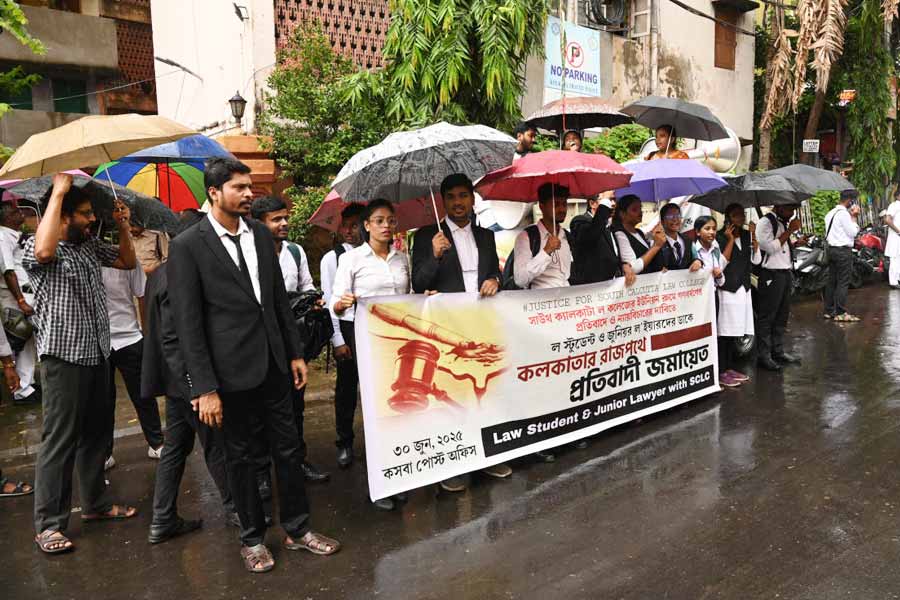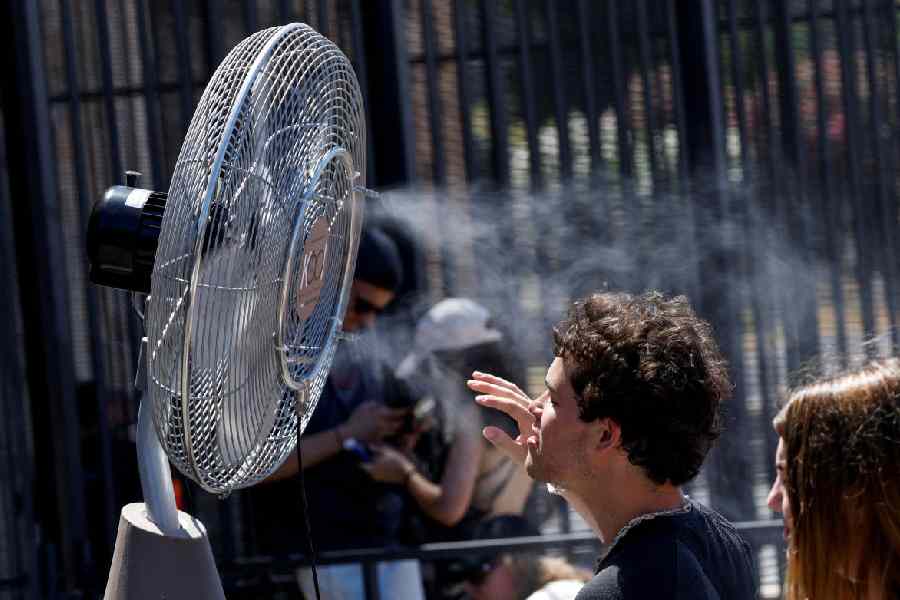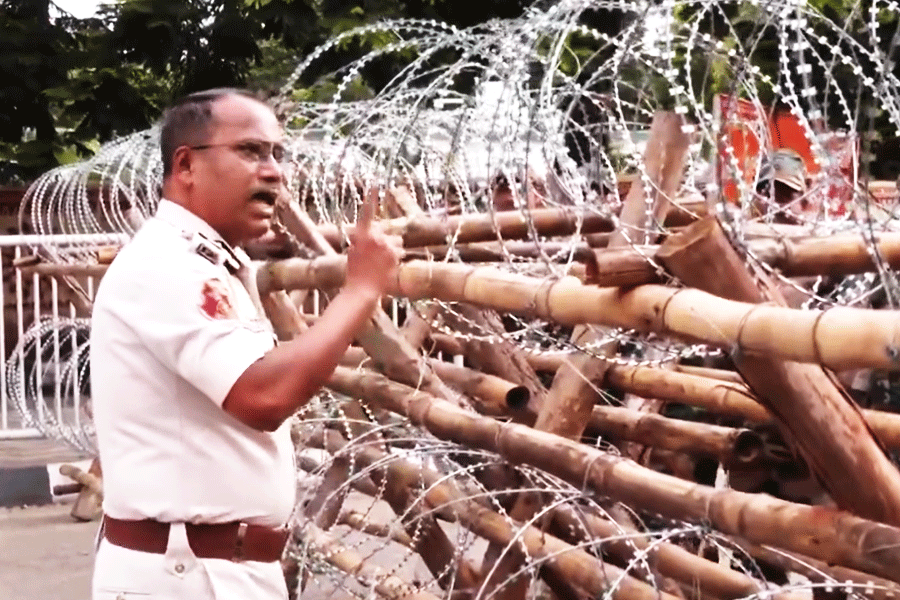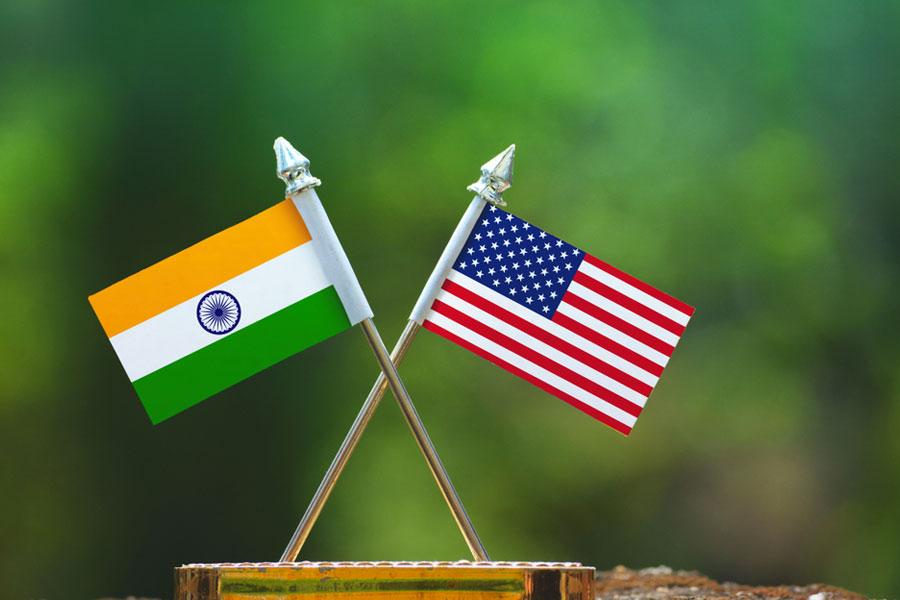 |
| A member of the Paharia Mukti Sena addresses the public meeting in Dumka on Saturday. Picture by Rajesh Kumar Pandey |
Dumka, Feb. 12: The government promise of a Paharia battalion comprising youths from the primitive tribe of Santhal Pargana has done precious little to placate the community.
The Paharias have called for setting up an autonomous council to safeguard their population, blaming the state and central governments of neglect for long.
The community also submitted a seven-point memorandum to Santhal Pargana commissioner Virendra Kumar Singh Madhup after a public meeting held yesterday on the occasion of tribal icon Baba Tilka Manjhi’s death anniversary.
Around 3,000 Paharias, including women and children, from across the region attended the meeting at Gandhi Maidan under the aegis of the Paharia Mukti Sena, whose leaders recalled the glorious past of the community urging everyone to fight against exploitation.
Addressing the gathering, Gayalal Dehri, the secretary of the sena, said, “Our ancestors forced the British to form the Damin-i-koh by demarcating 1,338 square miles as Paharia country permitting tax-free cultivation. But we have been facing adversities even after India’s independence.”
Damin-i-koh, which literally translates into “in the lap of the hills”, was the title given to the forested areas in Rajmahal Hills, demarcated in 1833 to provide exclusive status to the primitive tribe.
According to the last population count of the Paharias in 1985, their numbers stood at approximately 1.85 lakh.
Expressing fears over the allocation of lease for stone mining along the Rajmahal Hills — the original habitat of Paharias — and the entry of the Santhals into the forestland, Dehri said attempts were made throughout the past to undermine the community.
Interestingly, the Paharias contend that Tilka Manjhi, who led a revolt against the British at Rajmahal Hills between 1766 and 1780, was a member of their tribe, and not a Santhal. The Santhals are believed to have moved to the hills in the end of the 18th century.
Referring to the sacrifices of Tilka Manjhi, who was hanged by the British, Dehri said the tribal martyr’s aspirations were yet to be fulfilled. “The British absorbed youths from our community into its armed forces. They were known as hill rangers and noted for traditional skills in warfare, but the state government is yet to form a separate Paharia battalion, despite several announcements,” he added.
Dehri also asked the community to be wary of Maoists.
“On the one hand, Paharias have been deprived of government benefits and on the other, we are being exploited by the Maoists, who have turned villages on the hilltop into their own dens.”
Virendra Paharia, a member of the sena, complained that the Forest Rights Act was discriminatory, as it provided for allotment of forestland to other tribal communities.
“Paharias are entirely dependent on agriculture. Distribution of forestland will deprive us of the only option to eke out a living,” he said.
The memorandum of the Paharia outfit also sought amendment to the Forest Rights Act, 2006, prevention of mining in the hills, reservation of Assembly seats for the community, revival of a defunct divisional-level Paharia development committee and renovation of the historic pillars erected by the British to demarcate the Damin-i-koh.
They also demanded that the government form the Paharia Battalion, a brainchild of chief minister Arjun Munda, who had made the promise during a cabinet meeting in Dumka last November.
The battalion is touted to recruit youths from nine tribes, namely Asur, Birhor, Birjia, Hill Kharia, Korwa, Mal Paharia, Parhaiya, Sauria Paharia and Sabar.











